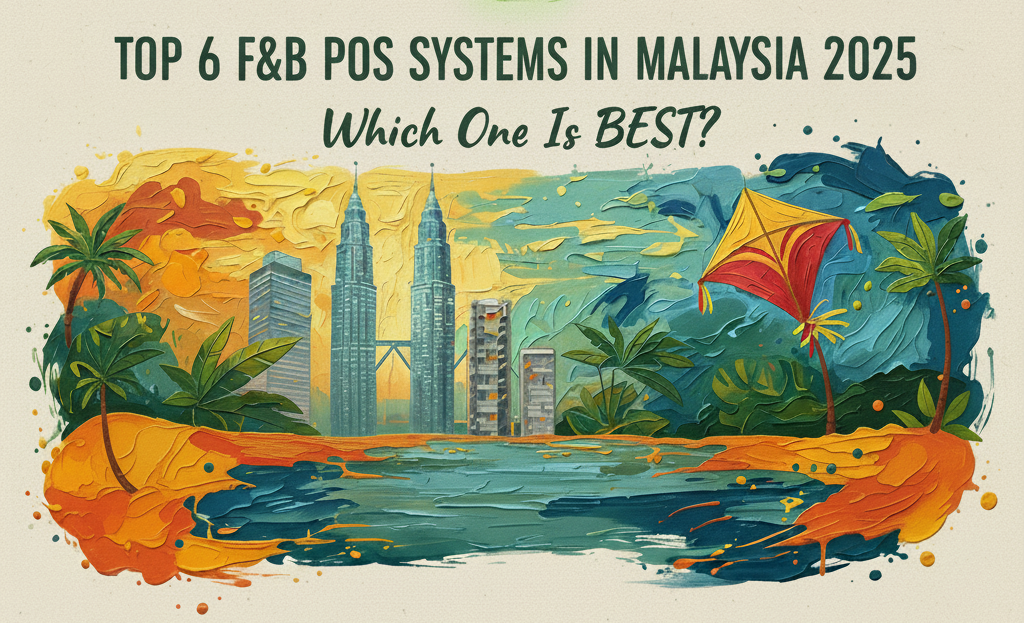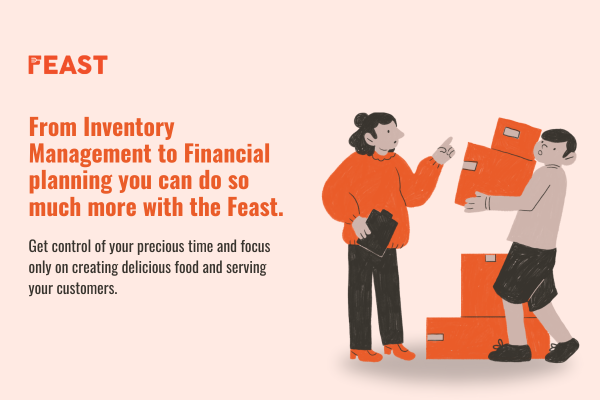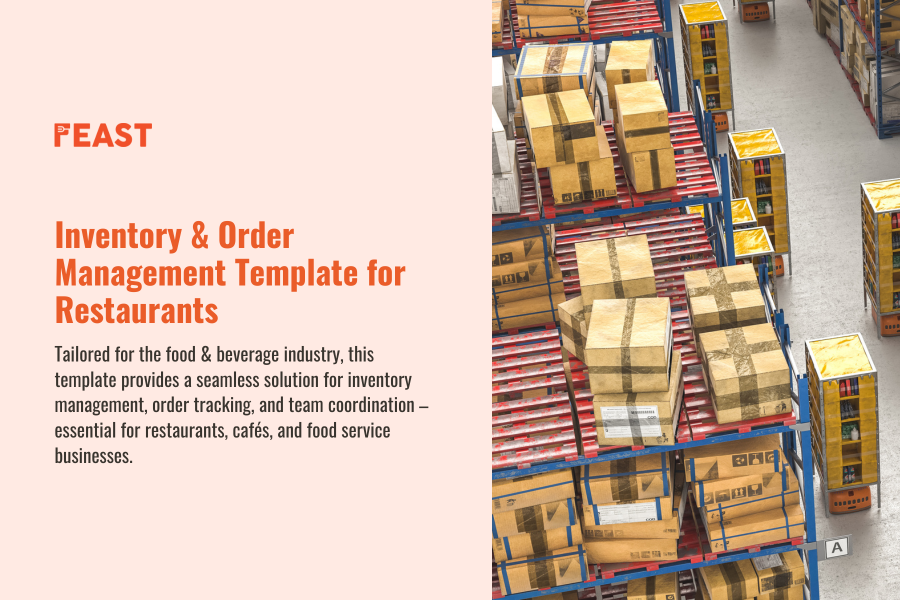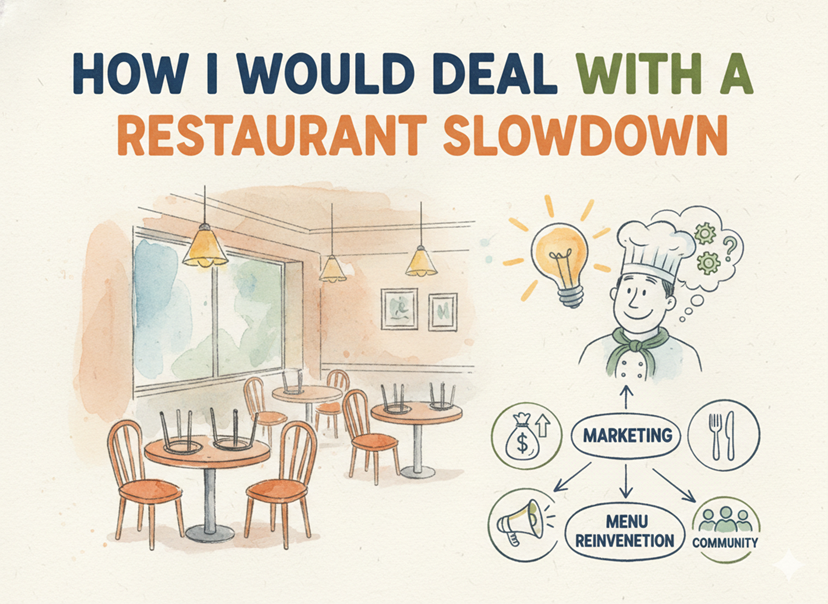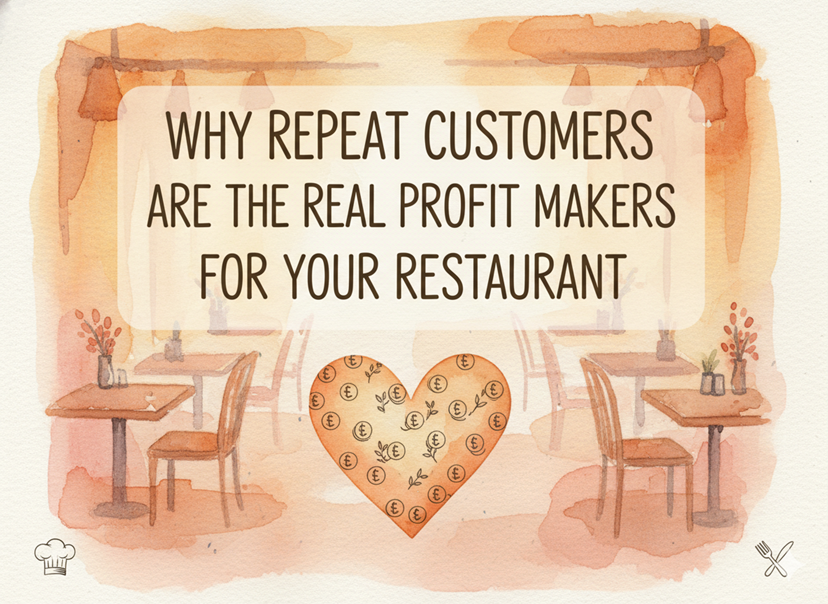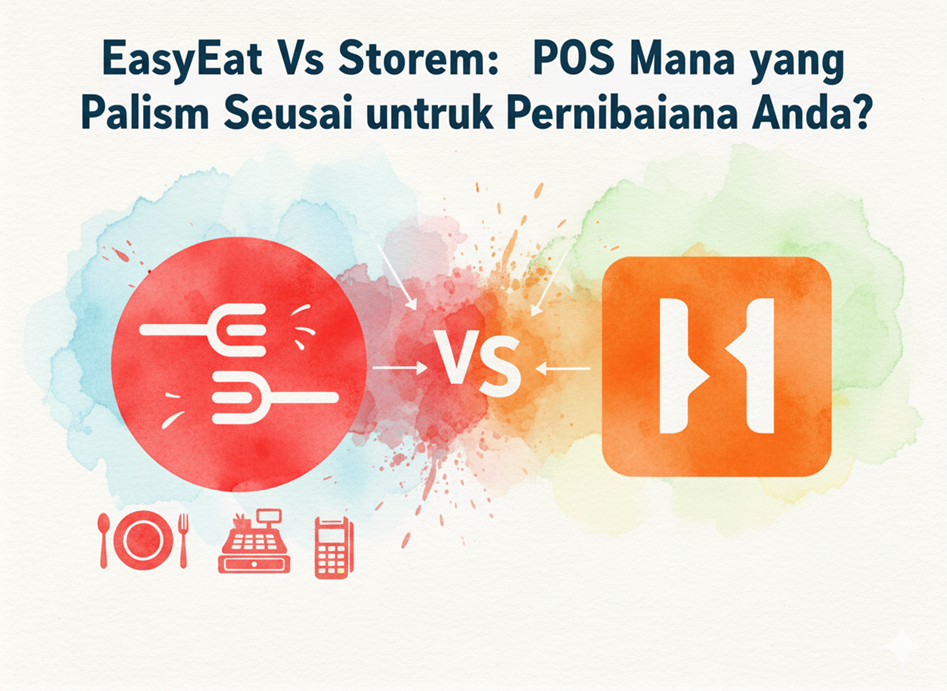Imagine taking orders on paper, checking ingredients by counting stock in your kitchen, or trying to remember customer birthdays without a system. Chaotic, right? If you are reading this, you already know that modern F&B operations cannot run on manual systems. You need technology to make your life easier and your business grow faster. That is why many people today are looking at F&B POS systems.
But with so many names in the market like EasyEat, Storehub, FeedMe, Loyverse, Hubbo, and Slurp, how do you know which one is right for you? To save you time, I’ve gone deep into comparing POS systems in Malaysia for 2025. And while there are many options, one system stands out above the rest — EasyEat.
Why POS Systems Matter for F&B Businesses in Malaysia?
Before we dive into the comparisons, let’s look at why a POS is more than just a billing machine. The F&B industry in Malaysia is expected to reach RM 127 billion by 2026 (Statista, 2024). With this growth, your challenge is not just to serve food but also to handle delivery platforms, loyalty rewards, payments, and stock control.
That is where the best POS systems step in. They let you track inventory, manage staff, reduce errors in orders, cut delivery costs, and keep customers coming back. Without one, your costs go up and your growth slows down.
1. EasyEat POS – Designed Only for F&B
Let’s start with EasyEat because this system is built only for F&B businesses. Unlike others that try to serve retail and different industries, EasyEat has put all its focus into F&B management.
The first thing you will like is the subscription model. EasyEat gives you subscription at a very low cost, so you don’t have to worry about paying every month or every year. The software adds AI features that help you increase your revenue automatically. No other system in Malaysia offers that level of intelligence in F&B operations.
Delivery fees are another big point. Many of you already lose a lot of money to delivery partners. A report by The Star in 2023 showed that food delivery commissions in Malaysia often go up to 30%. EasyEat reduces that pain by charging only a 6.75% delivery fee, including the payment gateway. Compare that with Storehub, which takes 10% on its advanced plan and up to 15% on its basic plan, and you see the savings clearly.
You also get instant analytics. Every sale, refund, or menu change is updated instantly so you can act fast. Other systems like Storehub and FeedMe delay updates, which makes decision-making slower.
Marketing is another area where EasyEat shines. You can send automated SMS at just RM 0.10 per SMS, store customer birthdays, and even send personal offers to keep them coming back. Storehub charges RM 0.20 per SMS, while FeedMe doesn’t even allow you to send SMS campaigns.
On top of this, EasyEat gives you offline access, multi-location management, mall integration, and even special tools for food courts. These are features no other system offers together. And if you are just starting and cash is tight, EasyEat even lets you buy the system through an installment plan with Atome.
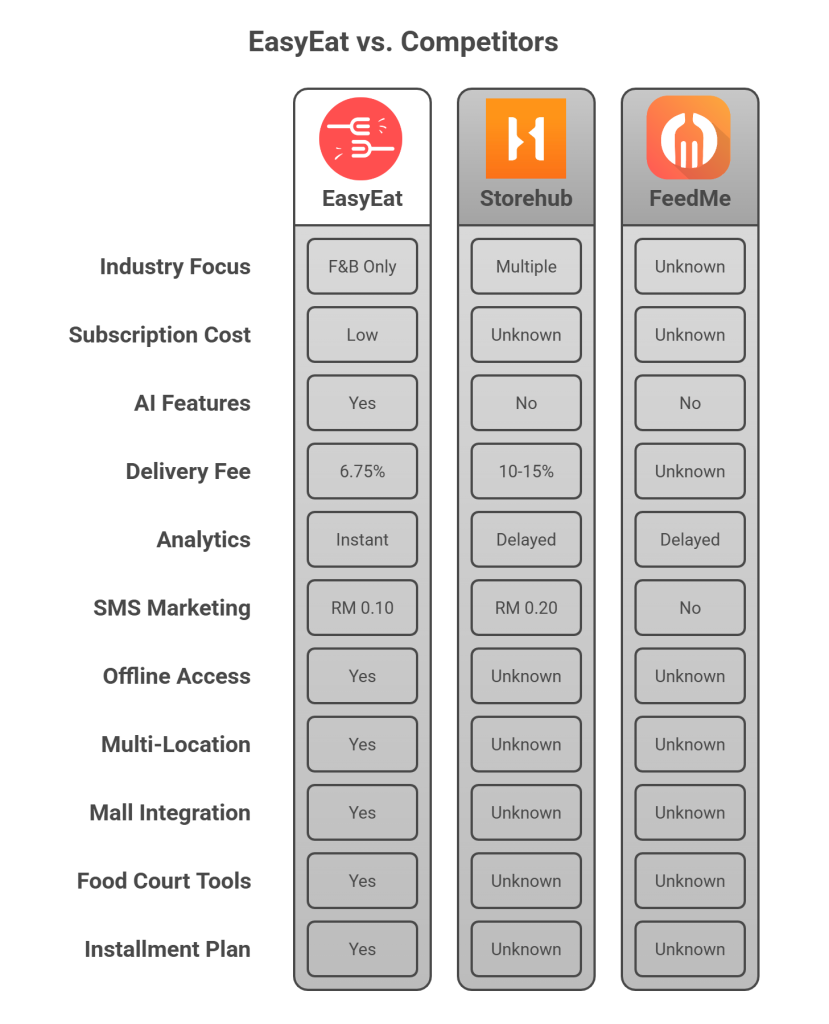
2. Storehub – Not Focused on F&B
Storehub is a known brand in Malaysia, but it is not built only for F&B. It serves retail, fashion, and other industries too. That makes it less sharp for your specific needs.
While Storehub does provide QR ordering and loyalty programs, the costs add up. Delivery fees of 10–15% are among the highest in the market. SMS costs are double compared to EasyEat. And you do not get offline access or mall integration, which can be a big problem if you have multiple outlets or are inside shopping malls.
If you are mainly in retail, Storehub works well. But for F&B management, it falls behind.
3. FeedMe POS – High Cost
FeedMe is another system you may have seen. It does give you good features like QR ordering, loyalty rewards, and inventory management. But when you look closely, the expenses pile up.
You need to buy the hardware separately, which costs RM 2899. The yearly subscription is RM 1080 + SST in the first year, and then RM 954 from the second year onward. Delivery fees are 8%, higher than EasyEat’s 6.75%. And unlike EasyEat, FeedMe does not let you run SMS campaigns or manage food courts.
Its loyalty program is staged (like free drinks or food after certain levels). While that sounds nice, cashback through EasyEat is actually more flexible and useful for customers.
4. Loyverse – Have to Pay for Every Add-On
Loyverse tries to attract you with free software, but once you want serious features, you pay a lot. Inventory management costs RM 117 per month (USD 25), employee management costs RM 23 per employee per month (USD 5), and marketing costs RM 42 per month (USD 9).
Even for QR ordering, you need third-party apps. Add all this up, and the free system is not really free anymore. You also need to buy your own hardware. For someone serious about growing in F&B, Loyverse becomes less attractive compared to EasyEat, which includes everything in one place.
5. Aliment (Hubbo) POS: A Basic Option with Limitations
Aliment POS, also known as Hubbo POS, is another system used by some cafés and small outlets. It has basic tools like order taking, QR ordering, and inventory tracking. If you only need the minimum, it might look like a decent starting point.
But when you look closer, Aliment misses many features that matter as your business grows. You need to buy hardware separately, which increases upfront costs. There is no installment plan to make it lighter on your cash flow. And unlike EasyEat, Aliment requires ongoing subscription fees for the software.
When it comes to advanced features, Aliment falls short. There is no food court control, no mall integration, and no multi-location management. If you plan to expand into more than one outlet, this limitation will quickly become a problem. There’s also no cashback-based loyalty program, no SMS promotions, and no offline access.
That means while Aliment can manage day-to-day work in a single outlet, it doesn’t give you the tools you need to scale up or improve customer engagement.
6. Slurp – Misses Many Features
Slurp is a Malaysian-made POS system and is often chosen by smaller outlets. It offers hardware and QR ordering, but there are serious gaps.
The first-year subscription is RM 2000, and after that, you pay RM 1500 yearly. There is no installment plan, no loyalty program, and no SMS marketing. Delivery charges are partly pushed to customers with an extra RM 1.50 added to orders. You also don’t get food court or mall integration.
If you want to scale up your business, Slurp does not give you the advanced features you will need.
When you look at all these F&B POS systems, you can see the pattern. Each competitor has something to offer, but also leaves you with big gaps.
EasyEat has everything you need: lower delivery fees, instant analytics, automated marketing, loyalty cashback, mall integration, food court control, offline access, and the flexibility of installment payments. That’s why it stands out as the best POS system in Malaysia in 2025.
If your goal is not just to process bills but to grow your business, improve customer experience, and make operations smooth, EasyEat is the clear choice.

